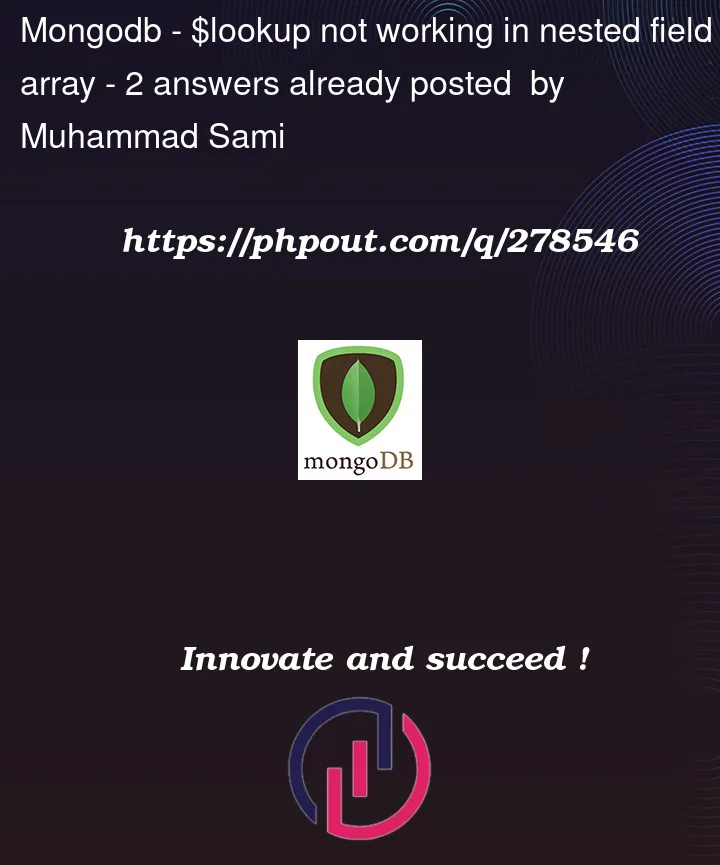I have notifications schema like this
user: {
type: mongoose.Schema.Types.ObjectId,
ref: "User", //this may be null if user is not in system
},
userEmail: {
type: String,
//required: [true, "User Email cannot be empty"],
},
notifications: [
{
notificationTemplate: {
type: mongoose.Schema.Types.ObjectId,
ref: "NotificationTemplate",
required: [true, "Notification Template cannot be empty"],
},
..]
I am trying to find user notifications with pagination and populate notificationTemplate but somehow it never populate notificationTemplate field. Each user can have multiple documents in Notifications.
here is my try
const doc = await Notifications.aggregate([
{ $match: { user: mongoose.Types.ObjectId(req.params.userId) } },
//{ $unwind: "$notifications" },
{ $match: { "notifications.protocols": { $in: ["webapp"] } } },
{
$lookup: {
localField: "notificationTemplate",
foreignField: "_id",
from: "NotificationTemplate", // Replace with the actual collection name
as: "notificationTemplate",
},
},
{ $sort: { "notifications.createdOn": -1 } }, // Sort by createdOn field in descending order
{ $skip: (page - 1) * parseInt(itemsPerPage) },
{ $limit: parseInt(itemsPerPage) },
{ $project: { notifications: 1 } },
//{ $unwind: "$notifications" },
]);
Here is how i recieve data, note that notificationTemplate is always id
[
{
attachment: [],
protocols: [ 'email', 'webapp' ],
isRead: false,
isDeleted: false,
createdOn: 2023-11-03T16:46:59.372Z,
notificationTemplate: 65451f5277306d1d2c418cd5,
url: '/session/654524e33e894e35ac4c00b9',
by: 63a66a814e32a254204776e8,
sentWeb: 2023-11-03T16:50:43.769Z,
notificationParameters: { subject: 'Networking iDea' },
sentEmail: 2023-11-03T16:50:45.766Z,
_id: 654524e59c36fe07f08542c5
}
]




2
Answers
In $lookup, localField must be different from as field.
Otherwise, it won’t work correctly.
For example, notificationTemplete field is 65451f5277306d1d2c418cd5 but there is no data with _id like that in NotificationTemplete collection.
result’s notificationTemplete field won’t be changed to Object and remaining in 65451f5277306d1d2c418cd5.
In your query, ‘localField’ is ‘notificationTemplate’ and ‘as’ is also ‘notificationTemplate’.
Change one and it’ll works correctly.
For example
Then result will be
I hope this answer can help you.
Good luck.
Your
notificationTemplateis a property of the objects stored in thenotificationsarray so you need access them in that way. Without seeing your schema this is a little like shooting in the dark but based on what you’ve shared your lookup should look like this:However,
$lookupreturns an array so that changes the shape of your documents. You will now have an array namednotificationTemplateon the same level as thenotificationsarray, not nested inside eachnotificationsobject.